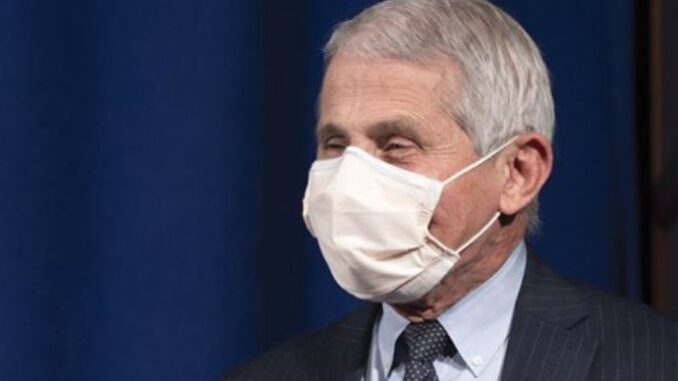
by Corinne Murdock | Dec 7, 2023 | Education, News
By Corinne Murdock |
On Tuesday, Gov. Katie Hobbs announced a $2 million fund to pay for new teachers and the final report complete with a lengthy list of recommendations from her Educator Retention Task Force.
In order to counter teacher shortages and improve retention, the task force issued a series of recommendations likely to come at a significant cost to taxpayers.
The task force recommended a permanent educator advisory group to the governor; a $10,000 raise in the average salary for teachers; a reduction in healthcare premium costs; 12 weeks of paid leave for childbirth, adoption, or fostering; more governmental efforts on raising awareness of student loan forgiveness programs; working conditions improvements including decreased class sizes, decreased workloads, increased amounts of support staff such as counselors and social workers, more planning and preparation time, and improving school safety; more stakeholder meetings and state government-level leadership roles to educators; an Arizona State Board of Education study and data collection system on retention rates; greater expansion and funding for statewide induction and mentoring programs; expansion of the Arizona Teachers Academy; child care for educators; more policies and systems to support educator mental health; reimbursement for certifications such as student teaching and counseling; and eliminating the one-year mandatory waiting period for retired teachers to return to the classroom.
Hobbs partnered with Arizona State University (ASU) Morrison Institute and the Hunt Institute to inform the task force, despite ASU having the highest rate of its graduates quitting the teaching profession over the course of five years in comparison to Grand Canyon University (GCU), Rio Salado College, and The New Teacher Project (TNTP) Academy.
ASU also had the highest rate of Arizona State Board of Education enforcement actions against its graduates when compared to other universities in the state. GCU had the highest retention rate of its graduates, and the lowest enforcement action rates from the Arizona State Board of Education.
The task force was divided into four working groups.
A first group focused on compensation and benefits. Its members were Jeremiah Gallegos, Littleton School District financial literacy instructor; Luisa Arreola, San Luis Middle School gifted program coordinator; Lynette Stant, Salt River Indian Reservation third grade teacher and 2020 Arizona Teacher of the Year; Marisol Garcia, Arizona Education Association president; Quincy Natay, Chinle Unified School District superintendent; and Ruth Ellen Elinski, Cottonwood-Oak Creek School District governing board member.
A second group focused on retention innovations and solutions. Its members were Justin Wing, Mesa Public Schools assistant superintendent of human resources; Lloyd Hopkins, Million Dollar Teacher Project CEO and founder; Melissa Sadorf, Stanfield Elementary School District superintendent; and Violeta Ramos, Osborn School District Spanish teacher and governing board member.
A third group focused on teacher preparation and certification. Its members were Curt Bertelsen, Pima Joint Technical Education District director of professional development; Jennifer Gresko, Rio Salado College faculty chair of educator preparation; Ramona Mellot, Northern Arizona University College of Education dean; Zel Fowler, Balsz School District gifted education teacher; and Janine Menard, Tolleson Elementary School District mental health professional.
The fourth group focused on working conditions. Its members were Jennifer Hulbert, Champion Schools – South Mountain second grade teacher; Jesus “Anthony” Lovio, Flowing Wells Unified School District special education teacher; Jonathan Parker, Sunnyslope High School principal; and Sarah Tolar, City of Mesa education and workforce administrator.
Corinne Murdock is a reporter for AZ Free News. Follow her latest on Twitter, or email tips to corinne@azfreenews.com.

by Corinne Murdock | Dec 6, 2023 | News
By Corinne Murdock |
Democratic and Republican leadership at all levels are calling on the Biden administration to reopen the Lukeville Port of Entry.
The state of the border in Lukeville consists of long lines of people, trash, and human waste. At night, the long lines are dotted with fires for warmth.
Reporters on the ground have noted the predominance of adult males seeking work, not asylum, among the illegal immigrant lineups. Those interviewed claim to have paid thousands for international transportation to the southern border.
The illegal immigrants are effectively being handled on a “catch and release” policy: transported further into the country, with admissions far outpacing deportations and court dates years out.
Arizona House Democrats issued a statement from State Rep. Mariana Sandoval (D-LD23), whose district contains the port of entry. Sandoval expressed alarm at the economic impact of the sudden and undefined closure.
“The federal government has significant resources and capabilities, and it should divert those resources from other regions — and from other states if necessary — to handle this temporary influx before it causes permanent economic damage to our Tribal, border communities and state,” said Sandoval. “This decision was not well thought out and does not take into account how important legal cross-border traffic is to the lives and livelihoods of all Arizonans.”
Glendale Mayor Jerry Weiers issued a press release on Tuesday on behalf of his town’s many residents and visitors who pass through the Lukeville port. Weiers called the closing “unforgivable.”
“At a time when so many of our small businesses, and entertainment hubs like Westgate normally benefit from tourists and the trade and commerce created by their visits, it is simply unforgivable that our government is neglecting border security, leaving merchants in a lurch,” said Weiers. “The Biden administration has allowed inflation to shoot through the roof, and now it is allowing illegal migration to do the same, causing great harm to many communities like mine and the hard-working people who call them home.”
Gov. Katie Hobbs, in a joint release with Sens. Mark Kelly (D) and Kyrsten Sinema (I), said that the Lukeville closure only posed further, unacceptable harms to the state’s economy and community safety.
“Arizona border communities are in crisis, and our men and women on the front lines do not have the resources they need,” said Hobbs.
Rep. Raúl Grijalva (D-AZ-07) also requested the reopening of the Lukeville Port of Entry in a letter to President Joe Biden and Department of Homeland Security Secretary Alejandro Mayorkas. Grijalva also requested other information pertaining to the status of his September letter regarding the influx of illegal immigrants, what the president plans to do to address the disparity between federal funding and the influx of illegal immigrants, and a progress update on the Southwest Border Coordination Center.
“This current situation is both unsustainable and a dereliction of federal responsibility,” said Grijalva.
Rep. Juan Ciscomani (R-AZ-06) said the Lukeville closure served as further evidence of the Biden administration’s lack of control of the border.
“It’s time to implement the laws on the books and deploy the National Guard to fully support our men and women along the border — not close ports of entry making matters worse,” said Ciscomani.
Corinne Murdock is a reporter for AZ Free News. Follow her latest on Twitter, or email tips to corinne@azfreenews.com.

by Corinne Murdock | Dec 6, 2023 | News
By Corinne Murdock |
Gov. Katie Hobbs isn’t planning on deploying the National Guard to the border anytime soon; she said that security is ultimately the federal government’s job.
Hobbs told The Center Square that since the border town of Lukeville hasn’t explicitly requested that assistance, she wouldn’t be giving it. Hobbs said that the Biden administration needed to be doing more to mitigate the border crisis.
“It’s not something that they’re asking for right now,” said Hobbs. “We need the federal government to step up and do its job and secure our border.”
On Monday, the illegal immigration surge prompted the Biden administration to announce closure of the Lukeville port of entry for legal travel. Customs and Border Protection (CBP) issued a statement last Friday calling the ever-worsening border crisis an “evolving situation” that required taking personnel from the legal port of entry.
“In response to increased levels of migrant encounters at the Southwest Border, fueled by smugglers peddling disinformation to prey on vulnerable individuals, CBP is surging all available resources to expeditiously and safely process migrants,” said CBP.
Travelers were directed to cross the border through either the Nogales Port of Entry or the San Luis Port of Entry.
In response, Hobbs issued a joint statement with Sens. Mark Kelly and Kyrsten Sinema complaining about the Biden administration’s handling of the border crisis. The trio passed some of the blame across the aisle, implying that their Republican colleagues weren’t working with them well enough to “get something done” about the border.
“Partisan politicians who parrot talking points while watching the border further deteriorate must reject the echo chamber and work with us to get something done and keep our communities safe,” said the trio.
At any given time of day, hundreds of illegal immigrants — even up to around 1,000 — remain lined up along the U.S. side of the border, waiting for their processing and transportation to Lukeville or elsewhere.
The area has been admitting tens of thousands of illegal immigrants weekly as of late.
Hobbs wasn’t the only one as of late spurning state-led initiatives to mitigate the border crisis. Democratic lawmakers condemned a Texas bill authorizing state and local law enforcement to apprehend and arrest illegal immigrants. The legislators claimed that the Texas bill would result in racial profiling and familial breakups.
“This bill will undoubtably [sic] lead to widespread racial profiling and a circumvention of protections asylum seekers have under constitutional law and international obligations,” stated the lawmakers.
The Democratic lawmakers hosted a pro-illegal immigration activist effort, Todos Somos Texas (We Are All Texas), speaking in Spanish as well as English to make their case against border security. Todos Somos Texas is a coalition of multiple progressive groups including La Voz Demócrata de San Diego and Latinos Associated Together Informing Networking and Outreaching.
The controversial bill would restrict arrests from taking place at churches, medical facilities, and schools, but not college or university campuses.
A similar bill from Arizona was already rejected by the Supreme Court in 2012. Arizona v. U.S. determined that local law enforcement couldn’t arrest based on immigration status. Texas lawmakers backing the new law point out that, unlike the overturned Arizona law, the statute of limitations on misdemeanor crimes limits law enforcement to arresting those illegal immigrants who crossed recently — not those who have resided in the state for a long period of time.
Texas’ novel law may affect illegal immigrants from qualifying for an asylum claim, since criminal history serves as a disqualifier.
Texas’ bill would take effect in March 2024, upon signing by Texas Gov. Greg Abbott.
CORRECTION: A previous version of this story incorrectly referred to CBP as Customs and Border Patrol. The story has been corrected and now refers to CBP as Customs and Border Protection.
Corinne Murdock is a reporter for AZ Free News. Follow her latest on Twitter, or email tips to corinne@azfreenews.com.

by Corinne Murdock | Dec 5, 2023 | Economy, News
By Corinne Murdock |
Rep. Eli Crane (R-AZ-02) says that President Joe Biden’s energy policies are to blame for the burgeoning energy and national security crises.
Crane linked the crises to “idiotic” actions by the Biden administration, citing the cancellation of the Keystone XL pipeline, ban on drilling on federal lands, and the resulting depletion of the Strategic Petroleum Reserve (SPR).
“The Biden Admin has sabotaged American energy & compromised our national security,” said Crane. “Not to mention, these idiotic moves impose crippling costs on Americans.”
Gas prices in Arizona average about $3.40, a decline from last year’s average of $3.90. The national average was lower as of the latest federal data, at about $3.20. Arizona’s average gas price reached a record high last March, surpassing the previous high set in June 2008.
Biden canceled the Keystone XL pipeline on his first day in office by revoking the permit necessary for the pipeline’s completion through executive order. About a week later, Biden issued another executive order paving the way for a ban on new oil and gas leases on public lands and waters. That ban has not come to fruition, though the administration has added other burdens to the oil industry.
In July, the Biden administration announced new rules that would increase the cost that oil companies must pay to drill on public lands by over 16 percent — ending a century-long rate of about 12 percent — and end the renewal of unused permits.
When the Russo-Ukrainian conflict escalated last year with Russia’s invasion into Ukraine, the Biden administration began tapping into the SPR to mitigate the resulting rise in oil prices.
The strategy resulted in a 40-year record depletion of the reserve, at 180 million barrels. Last week, the Department of Energy (DOE) reported that it bought back nearly nine million barrels.
According to the U.S. Energy Information Administration (EIA) monthly data, domestic crude oil production increased at a greater rate under Trump than the past two years under Biden.
Under Trump (thousand barrels):
- 2017 produced 3.4 million; by September produced 2.5 million
- 2018 produced 3.9 million; by September produced 2.9 million
- 2019 produced 4.4 million; by September produced 3.3 million
- 2020 produced 4.1 million; by September produced 3.1 million
From 2017 to 2018, there were over 581,000 more barrels produced. From 2018 to 2019, there were over 496,000 more barrels produced. 2020 marked a decline, with about 351,000 less barrels produced. The first three months of 2020, prior to the pandemic’s likely impact, reflected record productions of crude oil that were higher than the first three months of this year’s production levels.
Under Biden (thousand barrels):
- 2021 produced 4.1 million; by September produced 3 million
- 2022 produced 4.3 million; by September produced 3.2 million
- Amount in 2023 produced so far (as of September): nearly 3.5 million
From 2021 to 2022, there were 234,000 more barrels produced. So far this year, there have been about 281,000 more barrels produced.
The Biden administration has made clear its commitment to swapping oil for total electrification. Their goal aligns with a globalist commitment to achieve net zero emissions by 2050.
Over the weekend, the Biden administration announced a new rule to reduce methane emissions from oil producers.
Corinne Murdock is a reporter for AZ Free News. Follow her latest on Twitter, or email tips to corinne@azfreenews.com.

by Corinne Murdock | Dec 4, 2023 | News
By Corinne Murdock |
Rep. Debbie Lesko (R-AZ-08) announced on Friday that her congressional committee will be questioning Anthony Fauci for the first time ever next month.
The hearing is scheduled to take place before the Select Subcommittee on the Coronavirus Pandemic for 14 hours over the course of two days: Jan. 8 and 9, 2024. Each day will consist of seven hours of uninterrupted, transcribed testimony. Additionally, Fauci will be made to appear at another public hearing before the subcommittee at a later date yet to be announced.
“Dr. Fauci will finally be answering the American people,” said Lesko.
In their announcement of Fauci’s hearing, the subcommittee issued an X thread highlighting some of Fauci’s “most egregious pandemic-era failures.” The subcommittee cited Fauci’s attempt to push the “Proximal Origin” theory published through mainstream media to disprove the Wuhan, China lab leak theory; Fauci’s awareness of the dangers of the gain-of-function research that resulted in COVID-19 prior to the pandemic, and his inaction to stop it; Fauci’s recent admission that COVID-19 vaccine mandates were a coercion tactic; and Fauci’s quick reversal on mask efficacy early on in the pandemic.
“[Fauci’s] upcoming testimonies will aid [our] ongoing effort to hold American public health officials accountable for pandemic-era failures,” stated the subcommittee.
The subcommittee, formed in 2020 under the Committee on Oversight and Accountability, consists of Lesko along with Republican Reps. Brad Wenstrup, chairman (OH-02), Nicole Malliotakis (NY-11), Mariannette Miller-Meeks (IA-01), Michael Cloud (TX-27), John Joyce (PA-13), Marjorie Taylor Greene (GA-14), Ronny Jackson (TX-13), and Rich McCormick (GA-06); and Democratic Reps. Raul Ruiz (D-CA-25), Debbie Dingell (MI-06), Kweisi Mfume (MD-07), Deborah Ross (NC-02), Robert Garcia (CA-42), Ami Bera (CA-06), and Jill Tokuda (HI-02).
One of the key focuses of the committee has concerned pinpointing the origins of COVID-19. Committee hearings and evidence point to the Wuhan Institute of Virology and its taxpayer-funded gain-of-function research as the source of the virus, bolstered by proof of government health leaders’ relationship to EcoHealth Alliance, the nonprofit research organization that funded the research.
In July, the select subcommittee held a hearing to discuss the Proximal Origin theory, a zoonotic proposal that the virus jumped from animals to humans in the nearby wet markets. The subcommittee found that Fauci and former National Institutes of Health (NIH) Director Francis Collins were behind drafting, publishing, and promoting the Proximal Origin theory, and that the theory lacked outside proof or verification.
The University of Arizona (UArizona) has continued to defend the Proximal Origin theory. Michael Worobey, head of the Ecology & Evolutionary Biology Department, maintains that COVID-19 originated in the Huanan Seafood Market, though his research acknowledged that a significant percentage of the first COVID-19 patients neither worked or shopped there, and that the researchers never tested market animals purportedly linked to the initial outbreak.
The Wuhan lab is less than nine miles from the wet market.
Corinne Murdock is a reporter for AZ Free News. Follow her latest on Twitter, or email tips to corinne@azfreenews.com.





